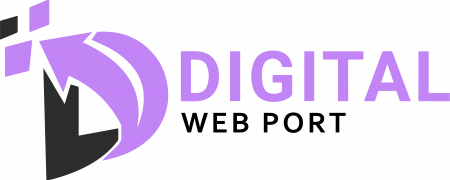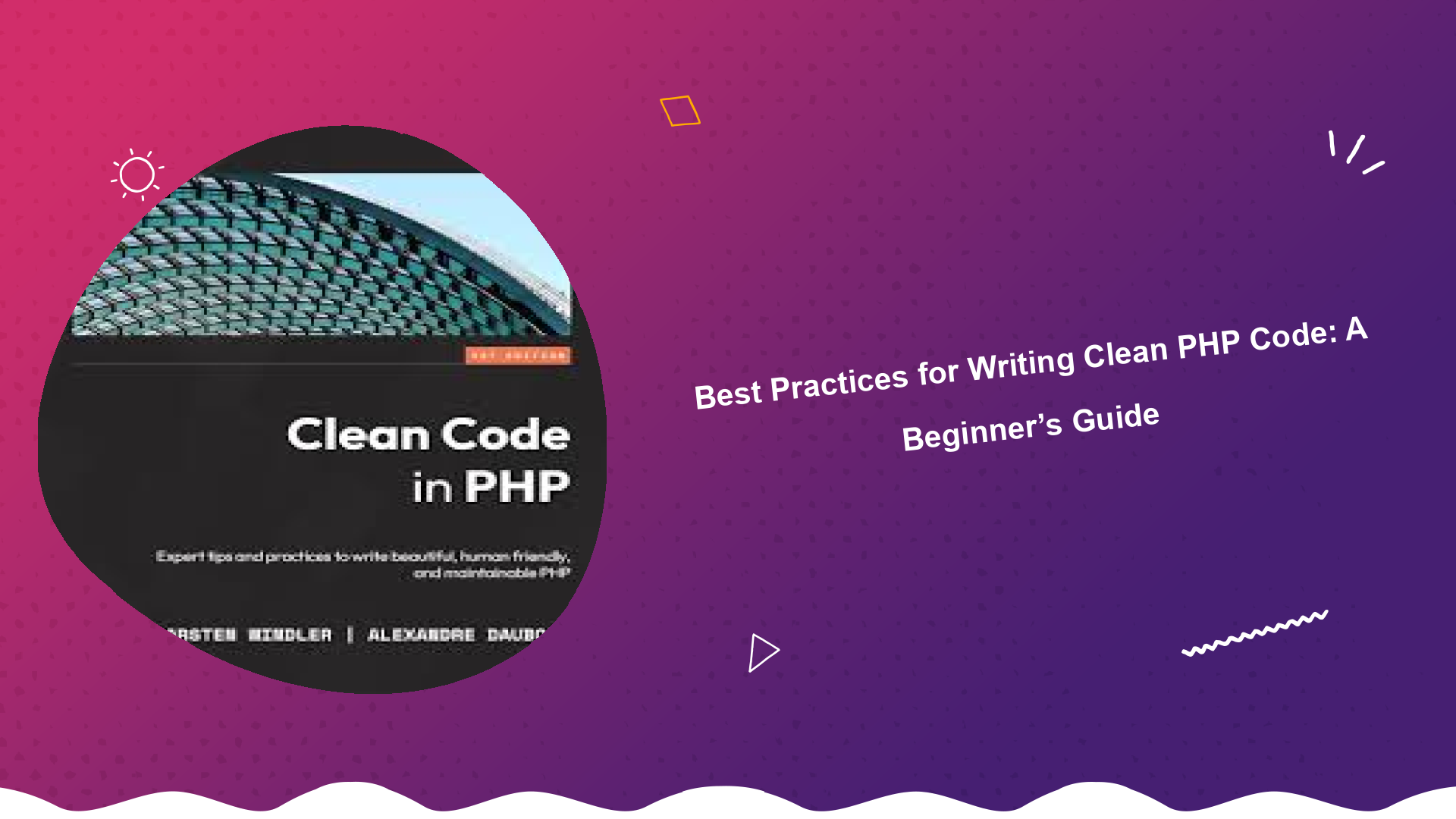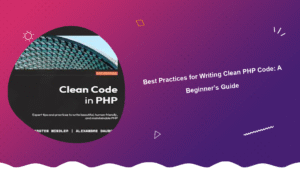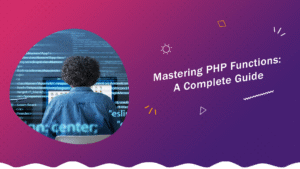Table of Contents
Introduction: Why Clean PHP Code Matters
Writing PHP code that works is one thing, but writing clean PHP code best practices is another. While your script might function perfectly, poorly written code can lead to a nightmare of maintainability, debugging, and collaboration. Imagine trying to decipher a tangled mess of spaghetti code – that’s what happens when you neglect clean PHP code best practices. This guide is tailored for beginners, providing a step-by-step approach to writing readable, maintainable, and efficient PHP code.
What is Clean Code?
Clean code isn’t just about making your code look pretty. It’s about making it:
- Readable: Easy to understand and follow.
- Maintainable: Easy to modify and update without introducing bugs.
- Efficient: Performs its intended function with minimal resource usage.
- Testable: Can be easily tested to ensure correctness.
Following clean PHP code best practices will significantly improve your development workflow and the overall quality of your projects.
Essential Best Practices for Clean PHP Code
1. Follow PSR Coding Standards
PSR (PHP Standards Recommendations) is a set of specifications published by the PHP Framework Interop Group. Adhering to these standards ensures consistency and interoperability between different PHP projects. Key PSR standards include PSR-1 (Basic Coding Standard), PSR-2 (Coding Style Guide), and PSR-4 (Autoloading Standard). Following Coding Standards is crucial.
// PSR-1 Example: Class names should use StudlyCaps
class MyClassName {
// ...
}
2. Use Meaningful Names
Choose descriptive names for variables, functions, and classes. Avoid abbreviations and single-letter names unless they are universally understood (e.g., `$i` for a loop counter). Good naming makes your code self-documenting. When diving into PHP Development, naming becomes crucial. Consider this:
// Bad:
$x = 5;
function calc($a, $b) {
return $a * $b;
}
// Good:
$quantity = 5;
function calculateTotalPrice($price, $quantity) {
return $price * $quantity;
}
3. Write Concise and Focused Functions
Each function should have a single, well-defined purpose. Keep functions short and avoid excessive nesting. If a function becomes too long or complex, break it down into smaller, more manageable functions. Mastering Mastering PHP Functions is key to clean code. Learn about How to Get Started with PHP for Beginners and build from there.
4. Comment Your Code (But Don’t Overdo It)
Comments should explain the *why* behind your code, not just the *what*. Use comments to clarify complex logic, explain non-obvious decisions, or document assumptions. However, don’t comment every single line of code – that can make your code cluttered and harder to read. If your code requires excessive commenting to understand, it’s a sign that it may need refactoring. A good balance is essential for Best Practices.
5. Handle Errors Gracefully
Don’t ignore errors! Implement proper error handling to catch exceptions and unexpected conditions. Use `try…catch` blocks to handle exceptions and provide informative error messages to the user or log them for debugging. Robust error handling is crucial for preventing unexpected application crashes. Avoid making the 10 Common Mistakes PHP Developers Make and How to Avoid Them!
try {
// Code that might throw an exception
$result = 10 / 0;
}
catch (Exception $e) {
echo 'Caught exception: ', $e->getMessage(), "n";
// Log the error
}
6. Avoid Global Variables
Global variables can lead to unpredictable behavior and make your code harder to debug. Minimize their use and prefer dependency injection or other techniques to pass data between functions and classes. Using global variables increases the complexity and makes maintaining Clean Code difficult.
7. Use Object-Oriented Programming (OOP) Principles
OOP promotes code reusability, modularity, and maintainability. Embrace principles like encapsulation, inheritance, and polymorphism to structure your code effectively. While frameworks like Laravel vs CodeIgniter: Which One Should You Use? A Comprehensive Comparison are invaluable, mastering OOP fundamentals is crucial.
8. Keep Your Code DRY (Don’t Repeat Yourself)
Avoid duplicating code. If you find yourself writing the same code multiple times, extract it into a function or class and reuse it. This makes your code easier to maintain and reduces the risk of errors. Consider how this applies when you build URL shortener PHP functionality.
9. Optimize Database Queries
Inefficient database queries can significantly impact the performance of your application. Use prepared statements to prevent SQL injection, optimize your queries, and avoid retrieving unnecessary data. Properly indexed tables are also essential for fast query execution. If working with a framework, research top Laravel packages for developers that might assist with query optimization.
10. Test Your Code Thoroughly
Write unit tests to verify that your code works as expected. Testing helps you catch bugs early and ensures that your code remains functional after making changes. PHPUnit is a popular testing framework for PHP. Testing is a vital part of the PHP development process. Check out PHP Manual: Testing for an overview.
Tools for Writing Clean PHP Code
- PHP_CodeSniffer: Automatically checks your code against coding standards like PSR-1 and PSR-2.
- PHPMD (PHP Mess Detector): Identifies potential problems in your code, such as complex functions and unused parameters.
- PHPStan: A static analysis tool that helps you find errors in your code without running it.
Conclusion: Embrace Clean Code for Better PHP Development
Writing clean PHP code best practices is an ongoing process, but it’s an investment that pays off in the long run. By following these guidelines and using the right tools, you can improve the readability, maintainability, and efficiency of your code. Start implementing these practices today and elevate your PHP development skills! When building any system, such as one that implements laravel authentication explained, clean code is paramount.
For more in-depth information on clean coding principles, consult Robert C. Martin’s “Clean Code: A Handbook of Agile Software Craftsmanship” (Amazon Link).







